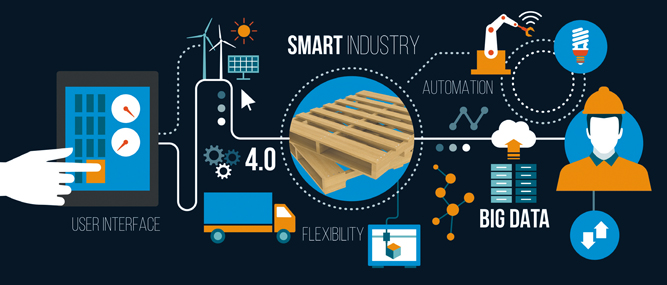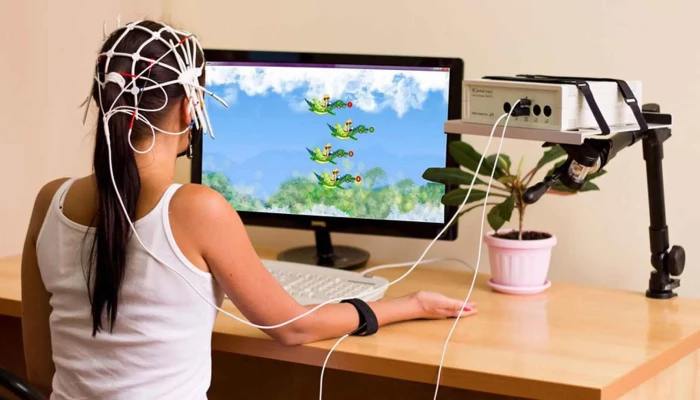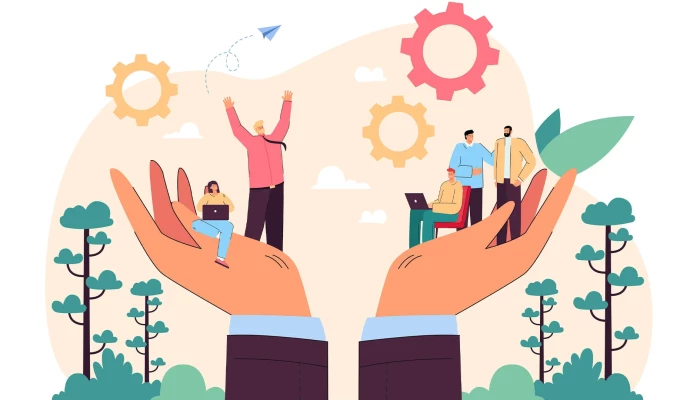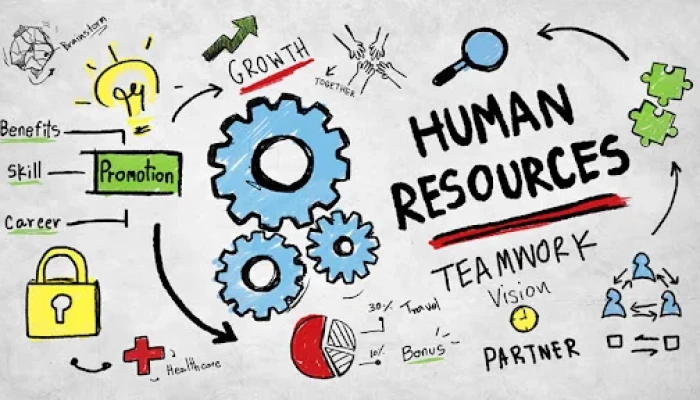Hello!
 To create a successful and optimized business, it is crucial to identify the most effective technologies for workplace advancement. Industry 4.0 offers the opportunity to work with new technologies and techniques that can improve the bottom line. This article discusses the various Industry 4.0 technologies and trends that will be important in 2023.
To create a successful and optimized business, it is crucial to identify the most effective technologies for workplace advancement. Industry 4.0 offers the opportunity to work with new technologies and techniques that can improve the bottom line. This article discusses the various Industry 4.0 technologies and trends that will be important in 2023.
Industrial 4.0″ has become a popular buzzword in recent years. Organizations from different industries around the world are looking for ways to move away from traditional manufacturing processes and into automated and digitalized processes and procedures.
We have introduced many new technologies to industries over the years for different purposes. The technologies are improving; they are becoming more efficient, but also more sophisticated. Let’s take a look at the industry 4.0 trends.
What’s So Special About Industry 4.0?
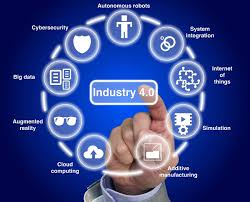 Smart and connected production systems are a key component of Industry 4.0. These systems and technologies will allow individuals to see the digital world and sense it. Industry 4.0 refers to technologies and measures that increase productivity, efficiency, sustainability, and the quality of work.
Smart and connected production systems are a key component of Industry 4.0. These systems and technologies will allow individuals to see the digital world and sense it. Industry 4.0 refers to technologies and measures that increase productivity, efficiency, sustainability, and the quality of work.
When we talk about industry 4.0 automation and data interchange, two systems stand out. These systems will improve productivity and industrial outcomes. According to UNCTAD Industry, 4.0 technologies can increase production lines activities by 5% to 15%
Furthermore, factories can cut their energy consumption by more than 40% using industry 4.0 systems. These benefits may be immediate or gradual, but they will all start to occur when organizations use the technologies and systems of Industry 4.0.
Trends in 4.0 Industries in 2023
These organizations need to find the right talent and workforce to manage the new technologies and provide solutions. The next generation of the industry will be impacted by technology. How we use these technologies will determine whether they can increase or decrease the parameters.
-
Optimal Energy Usage
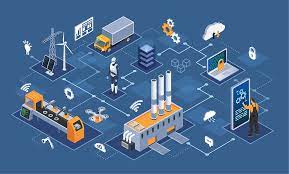 In the 1770s, Richard Arkwright built the first steam engine to power his textile machinery. This was the beginning of the Industrial Revolution. Since the beginning, energy has been consumed to power homes, factories, offices, and other places. It is now necessary to take strict measures to reduce our energy consumption.
In the 1770s, Richard Arkwright built the first steam engine to power his textile machinery. This was the beginning of the Industrial Revolution. Since the beginning, energy has been consumed to power homes, factories, offices, and other places. It is now necessary to take strict measures to reduce our energy consumption.
Industry 4.0 will bring about a reduction in energy consumption. We will be using cleaner fuels and more renewable energy to power our factories, homes, and factories. This will result in a decrease in dependence on fossil fuels and high-energy-release power sources such as coal. To achieve this benefit, however, industries must also take steps to reduce their energy consumption.
-
Internet of Things
IoT is the greatest thing to ever happen to the industry. Because it is such a powerful technology, we might have been discussing IoT for years. IoT is a future trend, technology, and life-changing technology that you will find in all of the online references from 2018 to 2023.
Why is this? IoT is a powerful tool that can transform the way we manage our homes, businesses, factories, lives, and jobs. Every industrial entity can do this efficiently and accurately with IoT. IoT can play a vital role in enabling machines to interact with one another and make the best decisions.
-
3D Printing
 While 3D printing is still in its infancy, we can see that it is an incredible technology with great potential for the future. 3D printing does not only allow you to print small figurines and bobbleheads. It is being used in the construction industry by manufacturers to make low-cost prototypes.
While 3D printing is still in its infancy, we can see that it is an incredible technology with great potential for the future. 3D printing does not only allow you to print small figurines and bobbleheads. It is being used in the construction industry by manufacturers to make low-cost prototypes.
The companies will save money by having the model reshaped and reformed in computer designs and then printed again for another test run.
-
Integration with 5G
A faster internet connection is required to transfer more data at a higher speed and perform better. 5G is expected to deliver 20GBps. 5G is 100x faster than 4G. It is faster than 4G, and 5G will improve communication, tracking, and data storage, among other things.
-
Cloud Technology Refined
The merger of various technologies will make cloud technology more advanced and better. This includes the merging of SaaS, PaaS, and IaaS. The systems that we use will also be customized to meet the requirements of each function. Organizations can adapt easily to cloud technologies and systems.
-
Adaptive artificial intelligence (AI)
 Adaptive AI is capable of adapting its code to match real-world applications and changes. These changes were also not known when AI systems were first implemented. Companies can quickly react to disruptions with adaptive AI.
Adaptive AI is capable of adapting its code to match real-world applications and changes. These changes were also not known when AI systems were first implemented. Companies can quickly react to disruptions with adaptive AI.
Businesses in all industries can learn new changes quickly and adapt their products and systems to meet the requirements. Businesses can learn from past human experience, machine performance, and other data to identify patterns that are most likely to be successful.
Making the right business decisions is crucial for any company. Adaptive AI allows businesses to have the flexibility and efficiency necessary to build an intelligent and efficient organization.
-
Smart Manufacturing
A new approach is needed to address manufacturing activities and processes. Smart manufacturing systems can be implemented with the goal of reducing operational costs and increasing visibility. Smart manufacturing systems can solve visibility issues and problems while also addressing concerns on the floor. This can help to develop and sustain the necessary quality standards.
Smart manufacturing is also able to address manufacturing processes that involve time-sensitive materials. Smart manufacturing can be used to improve visibility and management.
This can include increasing automation capabilities and maximizing workforce utilization. Smart manufacturing-induced automation ensures clear-cut procedures and eliminates production delays.
-
Predictive Maintenance
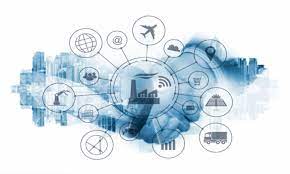 Predictive maintenance is the best way to reduce downtime costs. Unexpected downtime is a problem for both manufacturers and businesses around the world. It has caused companies to lose millions of dollars, ranging from network downtime to floor downtime.
Predictive maintenance is the best way to reduce downtime costs. Unexpected downtime is a problem for both manufacturers and businesses around the world. It has caused companies to lose millions of dollars, ranging from network downtime to floor downtime.
Companies can use the information they have about the machines to plan for maintenance. This will ensure that the machines perform at their best. Manufacturing houses and companies have shown success in reducing downtime and unexpected interruptions in work. This helps to prevent unexpected breakdowns, we can replace defective parts, and reduce unplanned outages.
We are able to save money and time that could otherwise be used to find solutions or repair existing resources.
-
Augmented Reality and Virtual Reality
Integration of AR and VR technologies in our industry will bring about great results. These technologies can bring practitioners closer to their products and work practices. They can also help businesses streamline production. You can get remote assistance, AR or VR-enabled walkthroughs, and even troubleshooting and repairs.
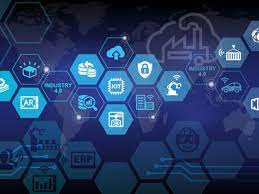 AR and VR technologies have seen a surge in popularity, particularly in education and customer service. AR and VR technologies in Industry 4.0 will be more widely used and enable companies to offer better customer experiences. AR and VR technologies could reach $360 billion in the 2030 market for product and service development.
AR and VR technologies have seen a surge in popularity, particularly in education and customer service. AR and VR technologies in Industry 4.0 will be more widely used and enable companies to offer better customer experiences. AR and VR technologies could reach $360 billion in the 2030 market for product and service development.
-
Next-Gen Manufacturing ERP
Enterprise Resource Planning is a tool that allows companies to automate repetitive tasks and streamline their operations. It can be used to give real-time information, and ultimately lower overall costs. Businesses in the industry 4.0 era are likely to embrace a data-driven approach to business processes that is supported by next-generation manufacturing ERP. They can use ERP to provide better value.
Four Business Activities in 2023
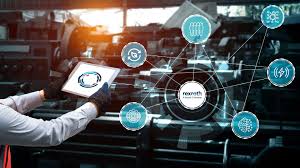 Businesses will need to focus on four main themes in 2023. This will help improve customer experience and deliver more value. These are:
Businesses will need to focus on four main themes in 2023. This will help improve customer experience and deliver more value. These are:
- Optimize: The key feature of this theme is to provide greater reliability and accuracy in decision-making, backed by real-time data analysis. Companies will be able to deliver more value using technologies such as AI.
- Scale: As more relevant technologies are added to mainstream processes, businesses will be able to offer better offerings, particularly in terms of delivery, production, and connectivity.
- Pioneer: This theme will give businesses the opportunity to tap into virtual markets and expand their existing networks. Businesses can also focus on changing their business model to meet the needs of the market.
- Sustainable Technology: The sustainable technology framework will increase energy efficiency and adaptability for IT services.
Conclusion
 Industry 4.0’s top trends will help businesses meet the needs of their employees, customers, partners, stakeholders, and clients. This will allow them to align their business processes with current market conditions and produce innovative results.
Industry 4.0’s top trends will help businesses meet the needs of their employees, customers, partners, stakeholders, and clients. This will allow them to align their business processes with current market conditions and produce innovative results.
If these trends are implemented correctly, they will bring strategic benefits to companies, offering them financial and operational benefits, as well as new avenues for growth. Intuz can help businesses to take advantage of any of these technologies, and provide bespoke solutions for both their process and operations.
Thank you!
Join us on social media!
See you!

